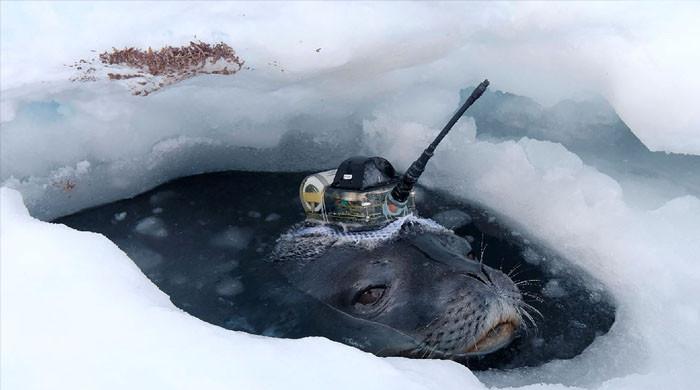Latest News
Seals help Japanese researchers collect data under Antarctic ice
Seals help Japanese researchers collect data under Antarctic ice

Latest News
Rainfall throughout the night stops flights in Lahore.
Latest News
Containers were used to seal the Red Zone before JI’s sit-in at D-Chowk.
Latest News
Changes to Pakistan’s Test team could be significant for the Bangladesh series.
-

 Latest News2 days ago
Latest News2 days agoThe ECP asks the SC to clarify the ruling in the PTI reserved seat case.
-

 Latest News2 days ago
Latest News2 days agoUS Will Not Interfere in Pakistan’s Internal Matters: Miller
-

 Entertainment2 days ago
Entertainment2 days agoFilming for “Yeh Ishq” begins with Sheheryar Munawar and Ushna Shah.
-

 Business2 days ago
Business2 days agoA jail sentence and heavy fines were declared for fake tax documents.
-

 Business2 days ago
Business2 days agoIPPs in Pakistan are receiving billions of rupees while not generating any electricity.
-

 Latest News2 days ago
Latest News2 days agoPrime Minister and Secretary General of ECO Hold Meeting
-

 Latest News2 days ago
Latest News2 days agoPM Youth Programme: Shehbaz Sharif Makes Critical Choices To Give Youth Jobs
-

 Business2 days ago
Business2 days agoThe price of gold has drastically dropped in Pakistan.






















